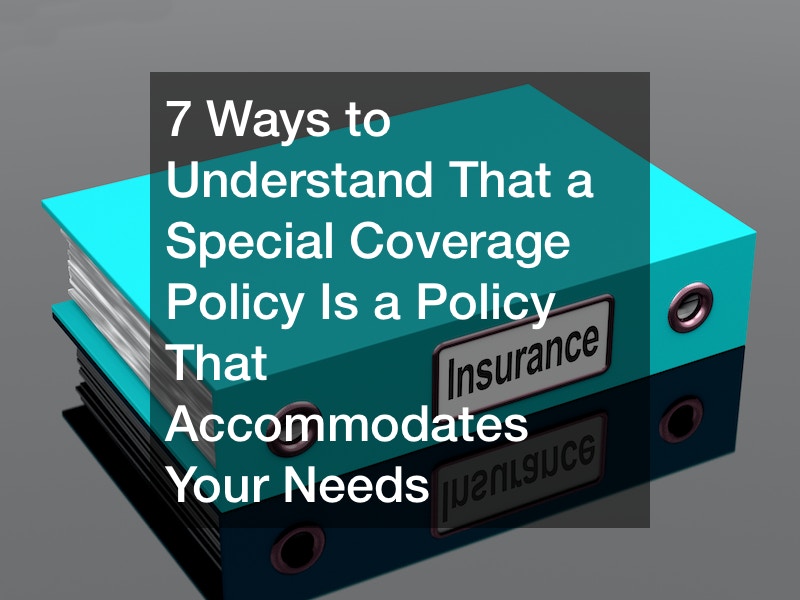
Most people don’t sit around reading Risk & Insurance magazine, so you probably don’t know about the wide range of choices among types of insurance. Many popular kinds of insurance policies might offer you protection, too. From medical coverage to home policies, there’s an insurance policy to protect every aspect of your life. You just need to know it exists and buy it, and you receive its financial protection.
This article delves into the most common kinds of insurance purchased. These options receive frequent coverage in Modern Insurance magazine. You don’t need a subscription to it or Digital Insurance magazine to learn about the latest in insurance; just read on.
1. Auto

Most auto insurance policies cover only the minimum insurance required in that state because few insurance magazines write for the public. That means you need a terrific insurance agent who wants to take the time to explain the ins and outs of auto insurance. If you purchase only the minimum insurance required in your state, you won’t typically protect your vehicle.
States require liability coverage for every driver or motorcyclist. Choosing minimum coverage typically gets you bodily injury and death coverage and property damage coverage. Those two types of coverage protect the other drivers on the road If you cause an accident, your policy’s bodily injury coverage pays the hospital bills of the injured people, up to the policy limits. If a person dies in an accident that you caused, the policy covers their emergency medical treatment and funeral expenses, up to the policy limits.
Although the name property damage sounds like it would cover your property, in this case, it does not. It covers the property of the other people involved in the accident. The only insurance required by any state that protects you or your vehicle is only a few states mandate, personal injury protection (PIP) and uninsured motorists.
To protect your own vehicle, you need to carry full coverage or close to it. That means adding comprehensive coverage and collision coverage. Comprehensive coverage provides financial compensation if your vehicle gets stolen or damaged in a peril named in the policy, such as a fire or earthquake. Collision provides you with financial compensation if your vehicle incurs damage in a single-vehicle accident, such as running into a mailbox or when a deer runs in front of your vehicle, damaging it.
Making a claim on either your comprehensive or collision coverage requires repair quotes from auto body collision repair businesses in your area. Insurance does not cover things like tire changes that a manufacturer’s service plan covers. It only covers things like auto transmission repair if the damage occurred due to peril or accident. Without full coverage, you would need to pay for vehicle repairs or buy a new car out of your own pocket.
2. Home
Here’s another thing that no insurance magazine explains to the public. The term home insurance includes eight different types of insurance policies. Varieties of home policies cover homeowners, renters, mobile homeowners, condo owners, and owners of historical homes. Each policy type covers different things in different ways.
Homeowners insurance consists of HO-1, HO-2, HO-3, and HO-4 policies. The HO-1 and HO-2 types, called named peril policies, only cover a specified number of perils, 10 and 15, respectively. The word perils refers to a hazard or accident that damages property, such as a tornado or fire. Both only cover perils and essentially, nothing else. An HO-3 policy covers all perils and includes personal property and liability coverage.
Certain home insurance only applies to specific housing types. For instance, only the owner of a historical home or architecturally relevant home could purchase an HO-8 policy. The owner of a condo can only buy condo insurance and if they rent it out, their renter can only purchase renters insurance. The owner of a mobile home or trailer can only purchase a mobile home policy.
A historical home policy provides the same level of protection as an HO-1 policy but pays for the costs of rebuilding or restoring the home if it incurs damage in a peril named in the policy. Condo policies only cover the interior of the condominium and any attached exterior portion, such as a patio or balcony. It also covers the personal property inside the condo.
Mobile home coverage only protects the structure and contents of the home. It requires tie-downs and a proper foundation plus skirting. It usually comes with some liability coverage. When the policy states it provides coverage for the personal property in the home, that means if lightning struck your home theater system and broke the stereo, insurance would cover the replacement purchase of the home theater system, but not typically the home theater system installation.
When damage occurs, you file a claim and the insurance company dispatches a claim adjuster. That individual examines the home’s damage and creates an estimate of what it would cost to repair it. You contact local contractors for repair bids and submit these to the insurance company for consideration.
If a storm breaks a window, you need quotes from a home window service repair person, not a luxury home remodeling service. Home insurance only pays relevant claims and only pays the actual quoted cost from a licensed contractor. The insurance industry uses many methods to ensure that they don’t get ripped off.
3. Pet

Perhaps you adore cats and have visited a local Maine coons breeder about adopting a fluffy friend. Protect the health and well-being of your new fur friend with pet insurance. It covers all types of pets, such as a real-life Odie, a faithful dog, a pet pig, a chinchilla, a lizard, a bunny, or other animal.
Some pet insurance provides annual visits to the veterinary clinic and emergency medical care. Read your policy carefully because what no insurance magazine explains is that some policies only cover emergency treatment. That can come in handy if your animal gets hit by a car or injured in a fight with another animal. It won’t help pay for annual exams though or flea treatments.
Go over the policy provisions with your insurance agent before making your purchase. Know what it covers and ask to add a rider to it for covering an item you know you will need. Pet insurance can help reduce the costs of caring for your animal, but only if you purchase the correct policy.
4. Business
More than 25 major types of commercial insurance get purchased every day. These policies range from general liability to glass insurance. Some specialty types of business insurance, like malpractice, only apply to those in the medical and legal industries. Only a business that owns its building would need boiler insurance, a type of insurance that covers the heating and air conditioning, and other essential building mechanical functions.
You won’t spot a quick quote option for business policies online because, unlike auto policies, they can exhibit a great deal of variety. An insurance agent meets with each client separately to interview them about their business and its assets. A commercial policy should protect the business from financial loss and damage to assets.
An attorney would need a different policy package than an appliance repair business. They might both start with a business owners’ policy (BOP), but each business would add to the BOP, which provides property damage coverage, business interruption coverage, general liability coverage, and coverage for perils coverage. The BOP package charges a smaller premium for the combined coverage than a business would incur by purchasing them separately.
So, a temporary fence rental company would need a different set of policies than a doctor. Both might start with a BOP, but each business would need to add different policies. The doctor would need malpractice insurance, while the fence rental firm would need an umbrella policy to extend the coverage of its general liability policy.
5. Health

Many an insurance magazine has written about the changes in medical insurance since the passage of the Healthcare Portability Act. Once it became law, each person in the country gained access to medical insurance. The federal government provided provisions for the unemployed, underemployed, and working. Each business of a certain size had to provide health insurance that met specific criteria to each full-time employee.
The citizens of the U. S. can find all health insurance options in the Healthcare Marketplace. This online store offers health insurance, dental policies, vision insurance, and policy packages that combine all three. The self-employed can access a tax incentive that may pay fully for their health insurance. The disabled still obtain Medicare coverage, as do the elderly.
6. Life
Many late-night commercials advertise cheap life insurance. Those policies typically only cover burial expenses, but you should plan for your family now. Consider how your spouse or long-time partner would pay for all of the household expenses alone. How would your children attend college?
Life insurance provides for those expenses if you buy the right policy. Essentially, life insurance consists of whole life policies and term life policies. Whole-life coverage means the policy provides the same coverage regardless of the age at which you die, as long as you pay the premium. Term life covers the policyholder for a finite number of years, typically 10, 20, or 30 years.
Term policies and their less expensive premiums prove more popular with young adults. Around the age of 40, most people switch to a whole-life policy that covers them until death, even if that occurs when they reach 107 years of age. Some whole-life policies let an individual purchase them outright by paying a large premium all at once.
Term policies tend to offer little variety, but whole life insurance ranges in coverage types and investment options. It offers many choices that let the policyholder build their savings and investment accounts while paying for their life insurance. Ask your insurance agent about life insurance with a cash value account or life insurance with a savings account. These two types work slightly differently, but both help an individual build savings pre-tax, meaning that you do not pay taxes on the savings until you someday use the money.
7. Long-Term Care

Along with health and life insurance, many individuals choose to buy long-term care (LTC) insurance. As many insurance magazines explain, long-term care policies ride the fence between health insurance and life policies because they provide for the medical care of those with lingering illnesses or cataclysmic injuries that preclude them from caring for themselves. The policy only pays for medical care in a nursing home or assisted living facility on a short- or long-term basis.
LTC policies do not pay for everything typically. You would still need retirement funds, Social Security payments, and health insurance. If you do not have those items, consider increased LTC coverage before anything bad happens because you cannot buy this type of policy after you develop an illness or incur an injury.
Consider a coverage plan that provides benefits for both spouses. Another option, an LTC policy combined with an annuity provides for the care facility and a monthly annuity payment. LTC insurance premiums can run high, so consider the likelihood of you needing the policy before investing in its purchase.
Shopping for Insurance
Most individuals own an auto policy, some type of home insurance, and medical coverage. Consider pet insurance if you adopted a pet animal. Businesses need various levels of commercial coverage, depending on their assets. Opt for life insurance to pay your burial costs, and take care of your family after your death.
Which policies you need depends on you, so contact a trustworthy insurance agent to discuss your needs and budget. Each person needs a different set of insurance policies at different levels of coverage. Consulting with an insurance agent ensures that you choose the correct policies for yourself, your family, and your business. Get started today protecting your financial security with the right insurance policies.



